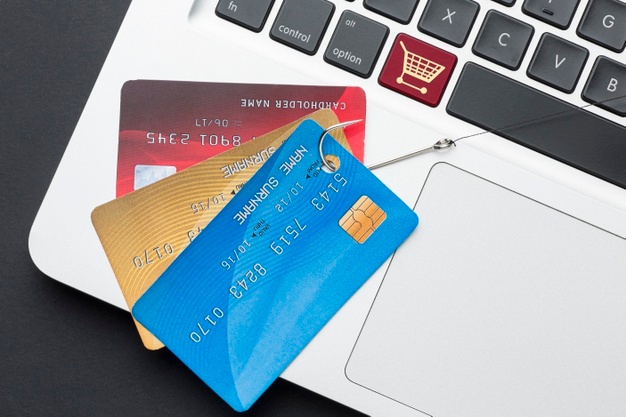
Due to the Covid-19 pandemic, major companies had to announce work from home globally in 2020. Undoubtedly, WFH is beneficial for both employees and employers. There is one biggest concern that each company has is cyber security. Due to WFH, cybercrime risks are increased.
Cyber Security Threats To Businesses
If you are a working professional or a company owner, you must scroll down to know the cyber security threats to businesses.
1) Phishing
According to Verizon Data Breach Investigations Report (DBIR) 2019, 32% of breaches involve phishing.
It’s a kind of cyber attack where you get an e-mail from an unknown source; to download the file or click on the link through which your data can be obtained. Phishing e-mails are common and have become sophisticated with time.
You must read the e-mails properly before performing any task.
These mails usually trap you by giving amazing offers that are hard to believe.

2) Third-Party Attacks
When a cybercriminal uses a third-party or outside supplier’s security system to access business networks are called Third-party attacks. These third parties are the vendors who claim to offer better website performance and mobility. Make sure you check the authenticity and reviews before using such websites.
3) IoT Attacks
According to Statista.com, the usage of IoT (Internet of Things) devices are expected to reach approx 31 million. IoT devices include all the devices that could get connected to the internet such as, laptops, routers, home security appliances, automobiles, etc. If one device is connected with another, both devices will go under cyber criminals’ control if hacked. They will be able to access your confidential and financial information. It is critical to use connected devices carefully. More connected devices lead to higher risks.

4) Formjacking
Most of us get 100 emails in a day where we are asked to fill in personal details and take a survey to get rewards. Those rewards are the trap to get the information and gain financial information. Sometimes, hijackers redirect you from the e-commerce checkout page to the form so that they easily get your financial information. As a businessman, it is your duty to aware your team about Formjacking. Symantec’s Internet Security Threat Report states that almost 4800 websites get compromised with formjacking code every month.
5) Cryptojacking
Nowadays, cryptocurrency is a popular online currency. Although it has lots of benefits yet it is hard to avoid cyber security threats. To invest in cryptocurrency, you may need a device with good processing power to do mining. Cybercriminals secretly hijack third-party devices to use them for mining. You may not know that your system is cryptojacked until you experience low processing speed.
Businesses should have anti-virus software to avoid cryptojacking.

6) Malware
According to legaljobs, almost 50% of malware attacks are targeted at small businesses.
A malware attack either slows down your computer speed or may damage the system to stop working. These attacks are usually done through downloading a file or material, clicking on a pop-up ad, etc.
It hampers the system through spyware, viruses, adware, worms, and trojan malware.
7) Ransomware
It targets big enterprises or corporates. Through this attack, the cybercriminal will get access to your confidential files or data. To regain access, you will have to pay hundreds or thousands to the hacker. The standard mode of payment remains bitcoins or gift cards so that nobody can doubt the transaction.

8) Artificial Intelligence (AI) And Machine Learning Attacks
AI and Machine Learning are not only being used in cyber security companies; they are being used by cybercriminals too. These tools help in gaining access to business networks and speeding up the attacks. According to CSO Online the majority of attacks takes place through Machine learning and AI attacks.
9) Search Engine Phishing
Cybercriminals have become smarter. As phishing, malware, and ransom are well-known cyber crimes. They have started making websites where your one-click can leak all your sensitive information such as bank accounts, credit card details, home addresses etc.

10) Shortage Of IT Professionals
With the rise in cybercrimes, the demand for IT professionals should have increased proportionately. Most businesses avoid hiring IT Professionals due to cost-cutting and end up regretting the decision. In case of a cyber-attack, hiring a freelance IT Professional will cost you more than a full-time IT employee.
11) Cloud Security Issues
We are all shifting to cloud platforms that increase the risk of cyberattacks. It is easier to steal data through cloud platforms. Cloud platforms have security. Since it’s new to the digital transformation, there is less security than private networks. Do not decline the use of the shared networks, be cautious because according to Gartner, 99% of cloud security cyber attacks till 2025 will take place due to customers’ fault.

How To Prevent Cyber-Attacks On Your Business
Cyber attacks on businesses are more common these days, below is the cyber security checklist that will be useful for small or mid-sized businesses.
(i) Educate Your Team
Most of the attempts get successful due to a lack of awareness of the employees. It is advised to run workshops to educate the employees about cyber security and its consequences.

(ii) Strong Password Policy
Keep your devices secured with strong passwords and double authentication systems. It reduces the chance of cyberattacks. Also, businesses should have cyber security policies readily available to employees to avoid a data security breach.
(iii) Install Anti-Spyware
Ensure that your devices must have anti-spyware software. It detects suspicious activities and controls their impact on your devices. It can not give 100% security but reduces the risk.

(iv) Backups Are Important
Always keep a backup of your data stored in another device. In the case of ransomware, you do not incur a loss of revenue.
(v) Avoid Using Public Wi-Fi And Hot-Spots
Public internet spots are not for commercial use especially. Viruses can also enter your devices through public Wi-Fi.

These tips can help you reduce the risk. It does not assure complete security. If in case you have become a victim of cybercrime, do not worry! Check with your IT specialist immediately and get the required done.
